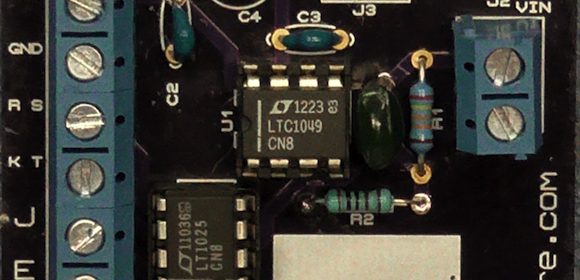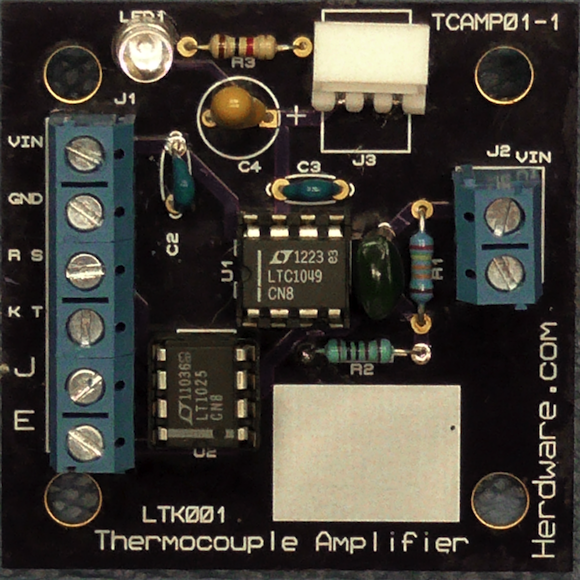Tutorial on Thermocouple Amplifier

Bill Herd at Hackaday has posted a new video tutorial on Thermocouple Amplifier that covers the most basic instrumentation required to interface a thermocouple to a microcontroller ADC channel for reliable temperature measurements. A thermocouple consists of a junction of two wires made of different metals and are characterized by a temperature coefficient that is required to convert the thermocouple output voltage to the sensed temperature. In addition, the thermocouple also needs to be calibrated to a reference temperature point. In his short tutorial, Bill explains a practical circuit to implement precise temperature readings from a thermocouple.
Different thermocouples sensors have a different temperature coefficients meaning that they will generate different amounts of voltage for the same change in temperature, usually specified in volts per degree of Celsius (v/◦C). Knowing the temperature coefficient of a sensor is only half the equation, we also need to nail down the zero point, meaning that we establish a calibrated reference point. Applying a known temperature such as immersing the sensor in ice water would be a simple if inconvenient way to establish a known reference temperature. Basically we could zero out and measure the change in volts per degree C from there. Alternatively we could use a Cold Junction Compensator (CJC) such as the LT1025, a chip made to not only replicate the different temperature coefficients of the various thermocouples, but also give us a pretty reasonable calibration.
